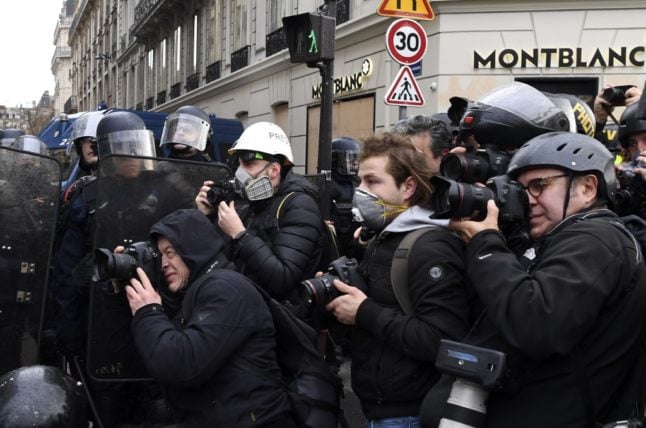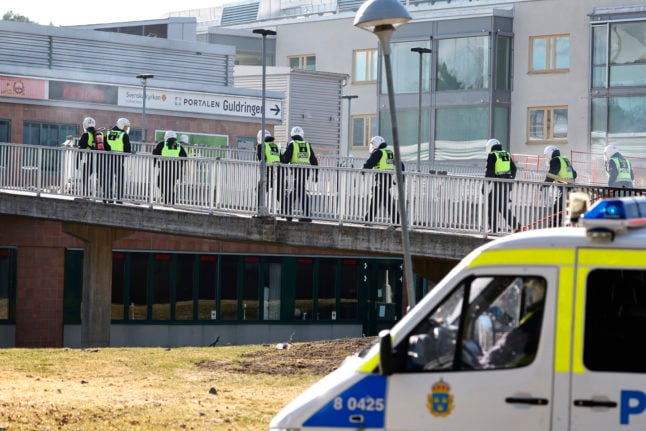Gérald Darmanin (pictured below) told a press conference on Wednesday that such prior declarations could “avoid confusion” if police are forced to take action against unruly protesters.
But journalists' unions say it could give police a green light to prevent them from doing their work and potentially documenting abuses by security forces.
Darmanin's comments came as a France Television journalist was detained on Tuesday while covering a protest against a new security law outside parliament in Paris, which would restrict the publication of photos or videos taken of police officers' faces while in action.
READ ALSO OPINION: French interior minister is becoming a danger to Macron and France
 The French Interior Minister Gérald Darmanin. AFP
The French Interior Minister Gérald Darmanin. AFP
The journalist was held overnight and only released around midday on Thursday, and other journalists also said they had been prevented from filming arrests as police broke up the demonstration.
The new law would criminalise the publication of images of police officers with the intent of harming their “physical or psychological integrity”. In many cases an officer's face would have to be blurred.
French police have been in the spotlight in recent years for alleged brutality meted out to protesters as well as criminal suspects, especially those from black or Arab minorities.
A series of incidents caught on video and spread on social media have spurred calls, and numerous demonstrations, for police reform.
But police say they risk great personal threat in the line of duty, and dozens have been injured in clashes with violent protesters in recent years.
An attack on a police station outside Paris last month by dozens of people armed with fireworks and steel bars spurred the government into taking concrete measures.
Darmanin, a staunch defender of the controversial new “comprehensive security” bill, said on Wednesday that journalists should declare themselves to the authorities “to make themselves known, to be protected by the police… to do their work as journalists during protests.”
He later clarified in a tweet that this was not an obligation, but press unions nevertheless expressed fear his statement would send the wrong message to police looking for an excuse to interfere in their reporting work.
Free press advocates are planning demonstrations in Paris and elsewhere in France on Saturday.
The UN Human Rights Council has warned the security bill, if passed, “could discourage, even punish those who could supply elements of potential human rights violations by law enforcement, and provide a sort of immunity.”
France's human rights auditor has also warned of “considerable risks” from the new law, saying: “The publication of images regarding police interventions are legitimate and necessary for a democracy to function.”



 Please whitelist us to continue reading.
Please whitelist us to continue reading.
Member comments